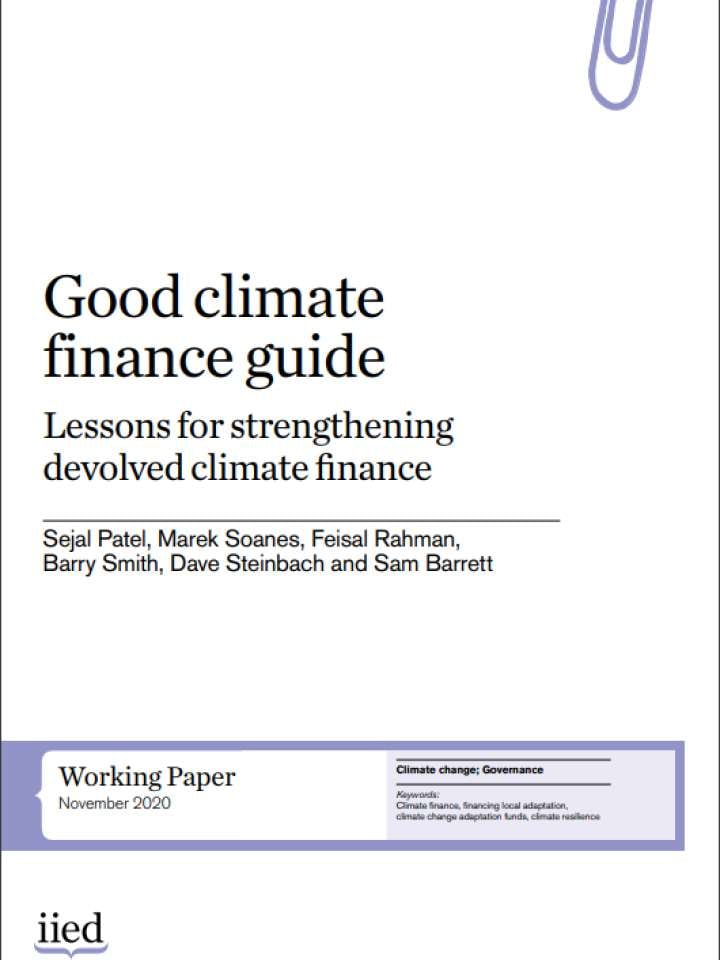Good climate finance guide: Lessons for strengthening devolved climate finance
According to this paper, climate finance is a key resource to help society’s poorest, most marginalised and excluded people deal with the impacts of the triple crisis of climate change, nature’s degradation and poverty.
This paper uses six criteria for ‘good climate finance’ and a positive deviance approach to draw lessons from six international climate funds and two development financing mechanisms to understand where climate finance is being delivered effectively to support locally led solutions.
Based on the case studies, it also presents recommendations for how climate finance could better support local actors to access and deliver the climate finance that they need to build their own climate and nature-positive solutions. Fully devolved climate financing — which gives local people agency over decision making — appearing limited and short-term, the paper recommends that climate financiers review their funding procedures, structures and portfolios according to six climate finance principles by:
- Providing simple, locally relevant policies and guidelines in local languages
- Accepting video submissions and audio descriptions of project objectives
- Avoiding hierarchical decision making that reinforces two-way (upward and downward) accountability and compliance
- Developing guidelines for locally relevant and robust adaptation principles that enable generational knowledge to be integrated with climate science
- Providing more patient finance over at least ten years
- Investing early in capacity building and learning to build institutional legacies
- Favouring learning-by-doing over ambitious resilience results frameworks
- Developing indicators that support locally led action, and
- Enabling greater budget flexibility
Explore further
